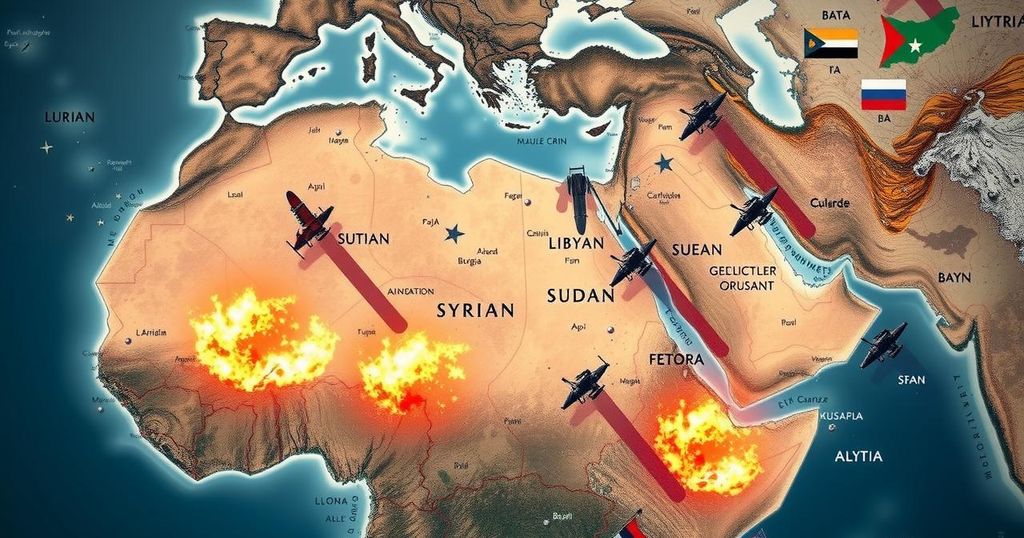Russia’s Strategic Shift: Seeking New Bases in Sudan and Libya as Syrian Ties Dwindle

With the potential fall of Assad’s regime in Syria, Russia faces losing its naval and air bases that have been central to its influence in the region. This loss compels Russia to seek alternatives in war-torn Sudan or politically unstable Libya. Engagements with both countries highlight Russia’s ongoing efforts to assert military presence and exploit resources in Africa amidst declining strength in the Middle East.
The recent decline of Bashar al-Assad’s regime in Syria poses significant challenges for Russia, particularly its military presence and geopolitical influence in the region. With the potential loss of the Tartus naval base and Khmeimim airfield, both crucial to Russian operations in Africa, Moscow is now contemplating alternative bases in conflict-ridden Sudan or the politically fractured Libya. These developments underscore the Kremlin’s ongoing struggle to maintain its stature not only in the Middle East but also across Africa, where it seeks to expand its military footprint and secure vital resources.
Historically, Russia’s military engagement in Syria began in 2015, aimed at stabilizing Assad’s regime. The Kremlin has leveraged its position in Syria to extend its influence throughout Africa, particularly through the Wagner Group’s activities aiding authoritarian regimes in exchange for economic benefits, such as access to mineral resources. As the situation in Syria deteriorates for Moscow, it has recently initiated withdrawals from its established Syrian bases, heightening the urgency of finding new platforms for its operations.
Reports indicate that Russia and Sudan have engaged in discussions to establish a military base near Port Sudan, aiming to navigate the geopolitical landscape in the wake of Syria’s potential loss. In parallel, the Wagner Group has operated in various African nations, including Sudan, while exploiting the ongoing civil conflict to solidify its presence and interests there. Alongside Sudan, Libya presents another potential avenue for Russia’s military ambitions; the complex political landscape and ongoing civil war highlight Russia’s opportunistic strategy.
In Libya, the Wagner Group continues to influence the conflict by backing General Khalifa Haftar against the UN-recognized government, strengthening its foothold in the region. As Moscow deliberates on the viability of Sudan and Libya as new bases, the absence of formal agreements in these nations currently prevents Russia from entirely replacing the strategic functions of the naval base in Tartus. This scenario signifies a broader examination of Russia’s military strategy as it grapples with substantial losses in Syria.
The article discusses the geopolitical implications of Russia’s potential loss of influence in Syria and the strategic military installations it operates there. The historical context highlights Russia’s engagement in supporting Bashar al-Assad from 2015 onwards and the subsequent expansion of its military presence in Africa through private military contractors like the Wagner Group. The analysis connects the current state of affairs to Russia’s objectives in establishing new bases in Sudan or Libya amid diminishing strength in Syria.
In conclusion, the loss of Russia’s military foothold in Syria marks a pivotal moment for the Kremlin as it seeks to reposition itself strategically in African territories. As discussions progress with Sudan and Libya, the challenges of establishing alternative bases underscore the complexities of Moscow’s geopolitical ambitions. Ultimately, Russia’s attempts to maintain influence in both regions reflect its desire to bolster military capabilities and secure critical resources amid an evolving global landscape.
Original Source: www.intellinews.com








